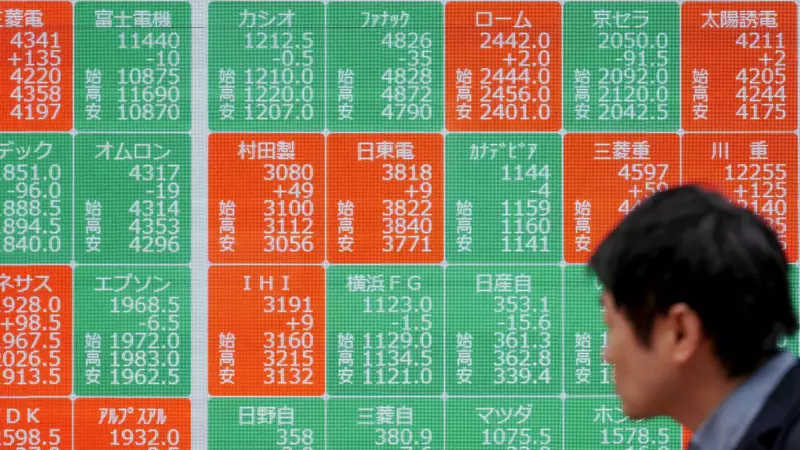
Asian markets experienced a sharp downturn on Thursday, with technology stocks bearing the brunt of selling pressure as investors reacted to Wall Street's overnight decline and mounting concerns about rising bond yields.
Major Asian Indices Take a Hit
Japan's benchmark Nikkei 225 index fell below the psychologically important 50,000 level, marking one of its worst performances in recent weeks. The decline was particularly pronounced in technology and growth stocks that had previously driven market gains.
South Korea's Kospi index suffered even more dramatic losses, plunging approximately 6% as heavyweight tech companies faced intense selling pressure. The broad-based selloff affected multiple sectors across the Asian trading region.
Wall Street Ripple Effects
The Asian market weakness followed a significant sell-off on Wall Street, where major indices closed lower amid growing anxiety about inflation and potential interest rate hikes. The Dow Jones Industrial Average, S&P 500, and Nasdaq Composite all finished in negative territory, setting a pessimistic tone for Asian trading sessions.
Bond Yield Concerns Weigh on Markets
Rising US Treasury yields emerged as a primary concern for investors globally. Higher bond yields typically make growth-oriented technology stocks less attractive, as they reduce the present value of future earnings. This dynamic particularly hurt tech-heavy indices across Asia.
Regional Market Performance
The market downturn was widespread across Asian exchanges:
- Japanese indices declined significantly, with technology and export-oriented stocks leading losses
- South Korean markets faced substantial pressure, particularly in the semiconductor and electronics sectors
- Other regional markets, including Hong Kong and Australia, also opened lower following the global trend
Market analysts noted that the selloff reflected broader concerns about valuation levels in technology stocks and the potential for tighter monetary policy from central banks worldwide.
Investor Sentiment Turns Cautious
The sudden market reversal has prompted investors to reassess their risk exposure, with many moving toward more defensive positions. The volatility highlights ongoing uncertainties about the pace of economic recovery and the timeline for potential policy changes by major central banks.
As trading continues, market participants will closely monitor economic data releases and central bank commentary for clues about future market direction.





